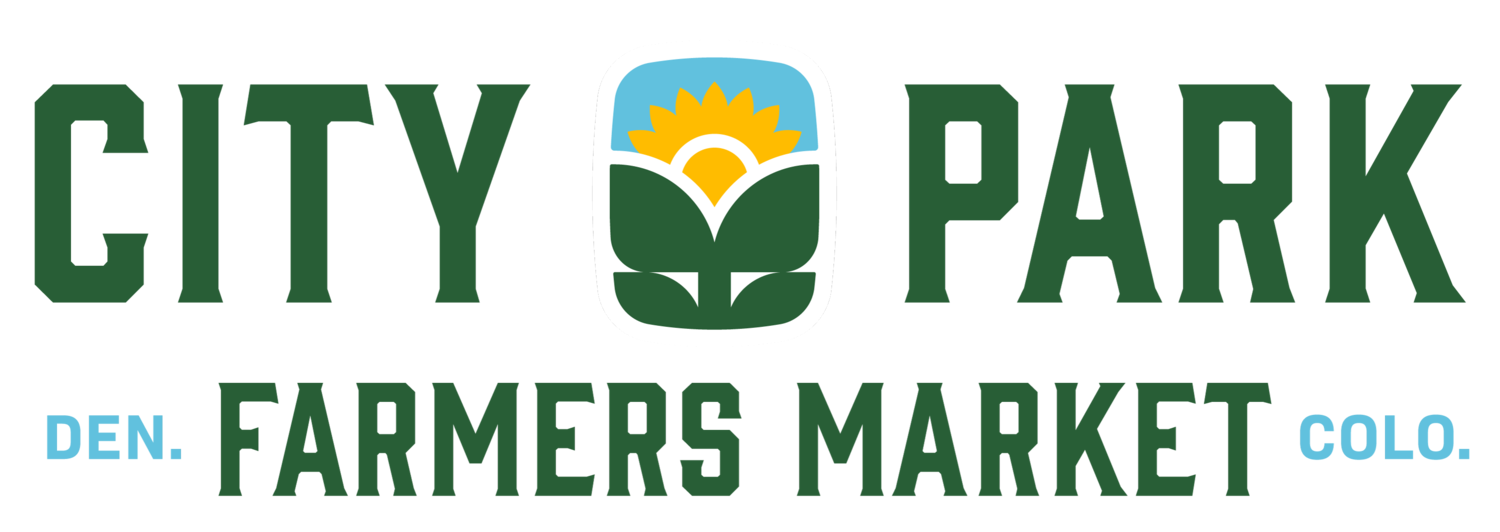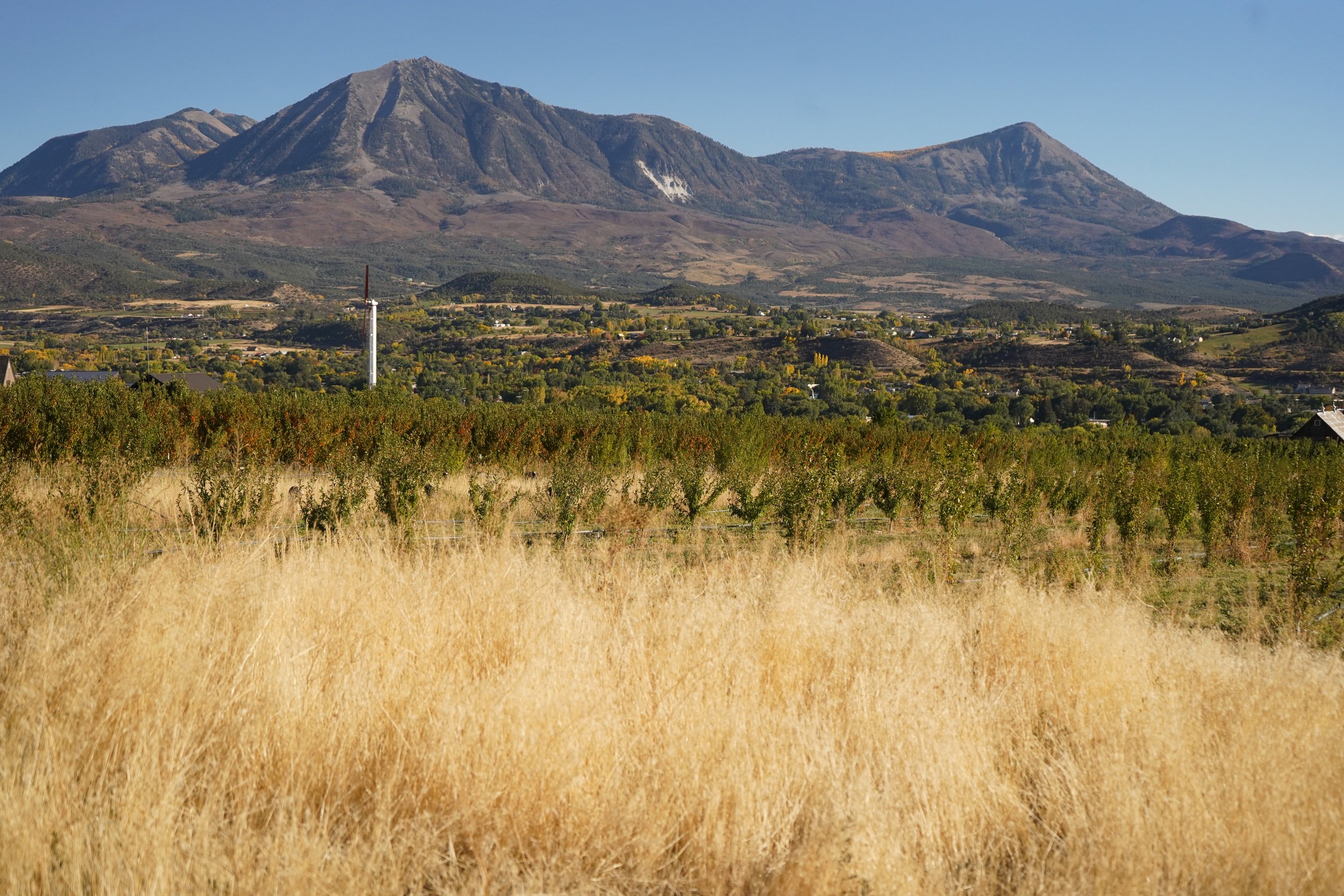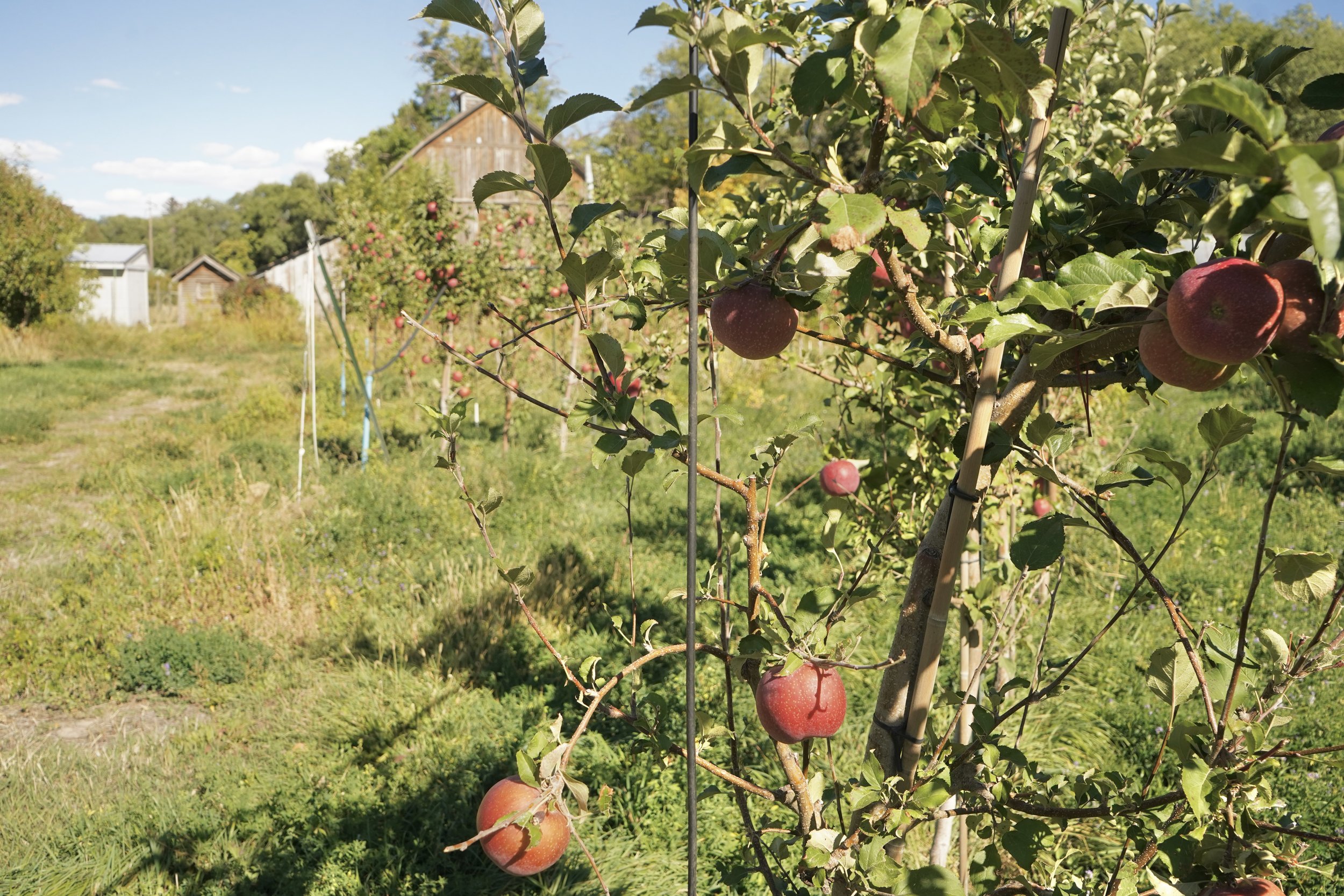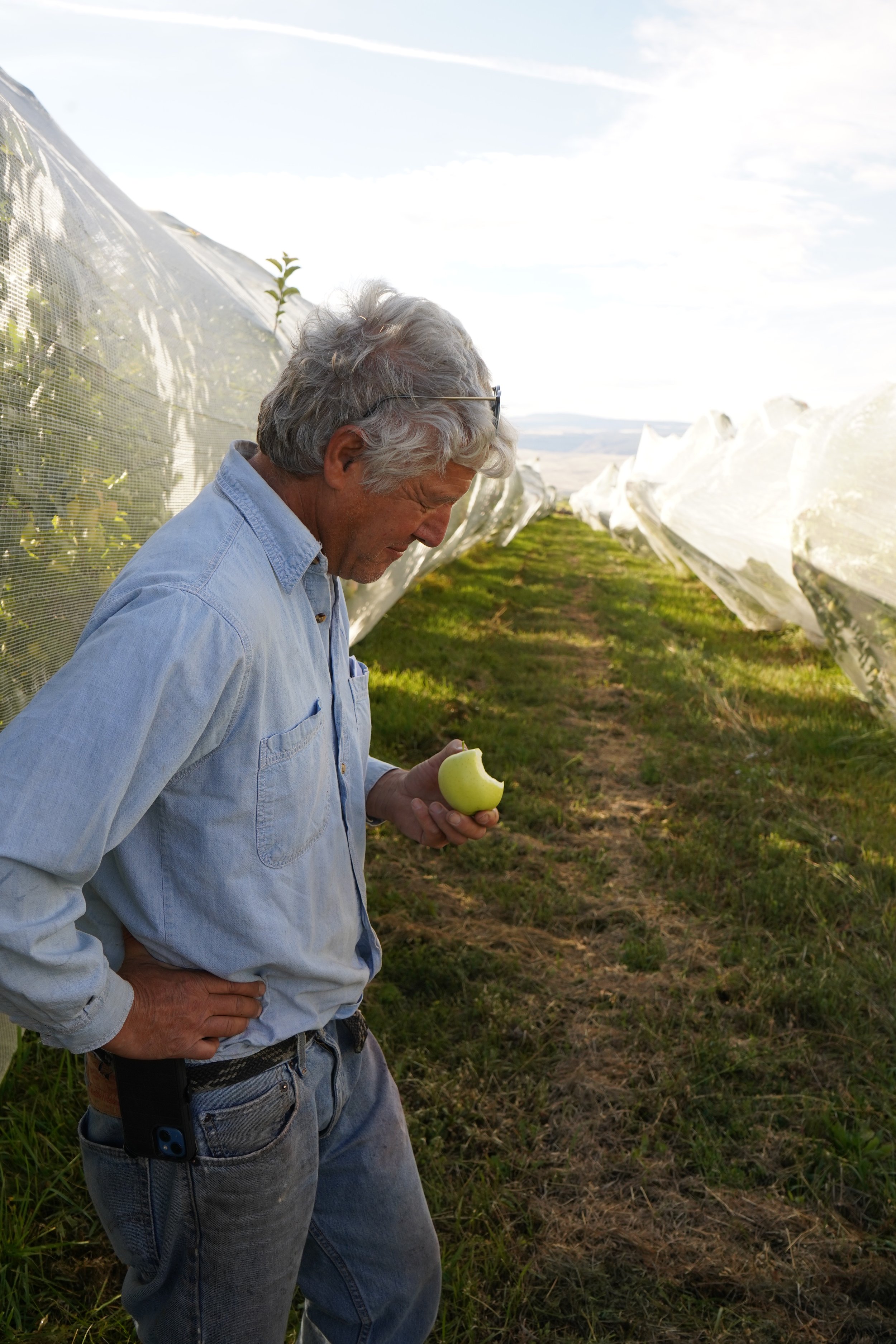Two (Sweet) Days on the Western Slope
Topp Fruits from above their first plot of land. Elk Range in the background.
A Farm Tour and Interview with Harrison Topp of Topp Fruits
The last time that Margo and I crested McClure Pass on the way into the Paonia/Hotchkiss area it was almost midnight, Margo was asleep in the old Tacoma passenger seat next to me, and I was looking for a spot to camp for the night before a farm tour with Ela Family Farms the following day. Although Steve had graciously offered a bed in his farmhouse, we were keen on sleeping under the stars in a new spot, waking up to explore the quirky, sleepy, and creative town of Paonia early the next morning before heading out to walk the farm.
Sleepy head
This year was different - Margo was almost nine months pregnant, and we have a one-year-old at home, making the solo trip much (much) more practical. Having done the drive in the dark last time, I was stunned by the magnificence of McClure Pass in the fall morning light, a patchwork of colors scattered over the hills, mountains, and peaks surrounded the steep, winding road. The decent into Paonia is marked by a transition from a distinctly alpine environment at 8700 ft, to that of orchards, vineyards, and grazing lands at 5,700 ft.
First Stop - Topp Fruits
Elk Range coming in from McClure Pass
Topp Fruits - apple tree at the first farm plot I visited
My first stop this time was to one of three orchards between Paonia and Hotchkiss that make up Topp Fruits, a first-generation certified organic fruit farm run by Harrison Topp and Stacia Cannon. You may recognize Harrison from some fun market photos we’ve posted over the last few years – his infectious grin and silly disposition are uniquely recognizable, and his passion for delicious fruit is self-evident if you’ve had the privilege to try any of the cherries, peaches, plums, pears, and apples that they grow.
Harrison wasn’t always a passionate farmer, and his deep commitment to Colorado fruit is relatively new – it’s been about six years since Topp purchased and began cultivating their first fruit trees. What drew him in was, and still is, the people behind the farms and farming communities. As a film student at NYU, Harrison was working on a research project on the music and dance culture around Southern Appalachia, most of which was really grounded in the agricultural community. The more he filmed and researched the community, the more he fell in love with the people and places behind agriculture, finding that his joy was in the characters and farms more than the filming and the project. He also found that he connected to the honesty and tangibility of the work. “It was one of the few places that I’d ever found that provided a unique intersection of so many things – it mixed business with natural resource issues, economics, social and cultural elements, storytelling, family, and life.” Harrison saw farming as an integration of his values into his life, which has since become a career.
From an outside perspective, I see fruit farming as wildly difficult, so I’m always curious what makes these farmers tick. There is obviously a deep-rooted motivation that drives these people to push through cold shoulder-season nights turning on heaters in the fields, long hours harvesting, trouble shooting, sorting fruit by hand, pest issues, expensive equipment, huge scale, not to mention the weekly middle-of-the-night drive to Denver to sell the fruit at farmers markets. When I asked what keeps you going still, he started by simply saying that “peaches are really good.” Only half joking, he went on to explain that he truly loves trees, peaches, apples, and cherries – the tangible, but also uniquely delicious food that they grow and have a relationship with. The more he talks, the more it becomes clear that the people are at least as much of a bedrock for what motivates Harrison, if not the central tenant to his passion. “The whole picture is the ‘why’ now. The people behind the farm, from the incredible athletes that come up from Mexico to help, to my family, to the community that surrounds us here, and we’re just passionate about keeping that going.”
Farmers markets are fairly new for the Topp Fruits crew. When I talked to Stacia a few years ago and asked if they wanted to hop on board, they gave us a hard… “maybe… we haven’t really done markets before.” The next week they called back and committed, and while we’ve been incredible grateful to have them, it was special to hear some of Harrison’s reflections on market farming. “It’s a feeling you can’t shake – it’s really unreal” to see a family walking away with your fruit and know that you’re helping sustain them. After long drives through the night to get to the market, Harrison says that the market has become an important counterweight of energy and excitement that never fails.... “It defies reality”.
As we wrapped up the tour around his farm plots, I wanted to know if there was anything he was particularly hopeful for as he brings his fruit to Denver each week. “We just hope that people can join us in celebrating the amazing side of Colorado agriculture that is the horticulture and fruit side. It’s just so special that the state has such an incredible niche that is peaches, apples, pears, plums, and cherries, in the high Rocky Mountains no less – even sweeter sometimes because of those conditions.”








